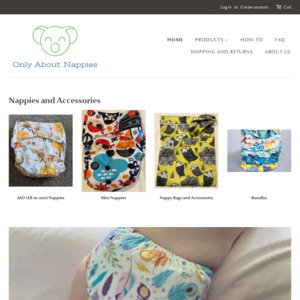A baby will go through approximately 2500 disposable nappies in their first year of life alone. These same nappies will sit in landfill for up to 500 years!
A Modern Cloth Nappy is re-usable, comfortable, and will save you so much money and ultimately will help to save our planet.
BabyTree is an established nappy brand in New Zealand, and has finally made it across the ditch to Australia.
These nappies have fantastic reviews - which should answer any questions or doubts you may have on this fantastic new trend.
The high quality of the product shows how good they are.
All of the mothers we have talked to who are using these are amazed at how well they work, and how easy it is to use.
The Bamboo fabric folding insert is extremely absorbent and results in less leaks than disposable nappies.
They fit well, clean easily, and babies bum stays nice and dry!
Each All In One (AIO) nappy is $19 each when buying 3 or more.
$8 Shipping Australia wide (usually $15). Free shipping if the order is over $100.
Please use the discount code at checkout - MUM19
If you’re looking to start your cloth journey or bulk out your stash. NOW is the time!
OFFER ENDS 13th MAY 2021


Hi, in your financial/environmental cost calculations have you accounted for the additional laundry detergent, napisan etc, water usage? Of course reusable ones will never make back the "time cost" but your cost-benefit calculation doesn't seem to cover all the factors fairly. How many times do you recommend each of your nappies can be washed in the product lifetime and how many times washing is required each time they are soiled?
Thanks